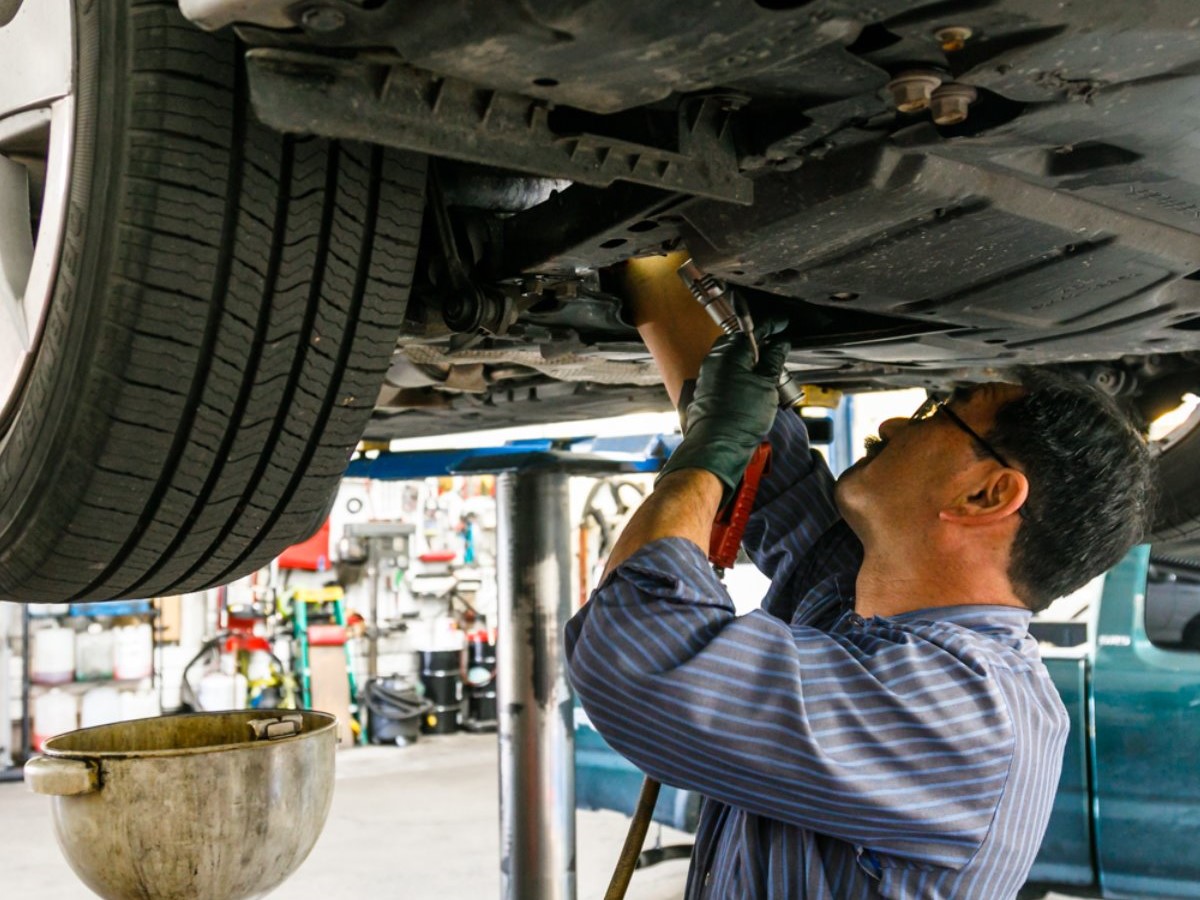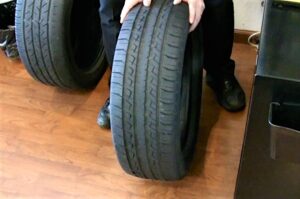
Maintenance is key to ensuring the long-term health of your vehicle. To gain further knowledge on this topic, we’ve asked six Diamond Certified Expert Contributors in the auto repair industry to share their tips on auto maintenance.
Tire maintenance
When it comes to auto maintenance, your vehicle’s tires are where the rubber literally meets the road. Properly inflated tires not only last longer, but they also optimize fuel economy, driving performance and safety. That’s why Ray Kunz of Orinda Motors, Inc. recommends checking your tire pressure on a consistent basis. “It’s common for a tire to lose as much as one pound of pressure per month,” he says. “Changes in temperature can also affect tire pressure. For every 10 degrees of ambient temperature change, you may see up to one pound of difference in your tire pressure. That’s why it’s important to regularly check your tires and reinflate them as needed.”

Tire maintenance is an important subset of auto maintenance. Photo: Orinda Motors, Inc. ©2022
In modern vehicles, this is made easy by a dashboard warning light that illuminates when a tire’s pressure gets low. You can typically find the correct pressure level (known as “psi”) for your tires on the driver’s side door jamb of your vehicle (you can also consult your vehicle’s owner’s manual). To add air to your tires, use the air pump at any local gas station.
Another important aspect of tire maintenance is rotation. To ensure even tread wear over time, a vehicle’s tires need to be rotated on a recurrent basis—typically every 5,000 to 10,000 miles. Any automotive shop should be able to perform this service for a nominal fee.
Sean Lin of Future Auto Care says it’s important to consider the season when having your tires rotated. “During summer, you want to have the better tires in the front, whereas during winter, you want to have the better tires in the rear. Because roads are wet during winter, having good tires in the rear provides more traction and reduces the chances of fishtailing.”
Fluid check
Fluids are the lifeblood of your vehicle, so when they get depleted, it can lead to serious problems. That’s why it’s crucial to keep an eye on vital fluids like engine oil, transmission fluid and antifreeze. Sergio Garcia of S G Auto Repair says this also includes brake fluid. “Brake fluid absorbs moisture from the atmosphere, and over time, water can build up inside the brake lines. This buildup can cause lots of problems, including corrosion of the wheel cylinders and brake calipers, which can eventually result in a fluid leak. To prevent this, have your brake fluid inspected every time you get an oil change.”
Speaking of oil changes, Eric Zugnoni of Antioch Napa Auto Care makes an important point about the frequency of this critical service. “For many years, the standard oil change interval was 3,000 miles, but the past decade has seen this interval stretch to as many as 10,000 miles for newer vehicles,” he explains. “However, this extended interval brings an unintended consequence. In the past, more frequent oil changes meant that mechanics got to see their customers’ cars on a fairly frequent basis. On the other hand, today’s longer intervals allow a lot of time for problems to develop undetected.”
To ensure preventative care, Mr. Zugnoni recommends keeping a consistent professional maintenance regimen. “If you drive a newer car, it’s wise to schedule regular checkups with your mechanic—ideally every six months. These routine inspections aren’t very expensive, and they can save you a lot of money by allowing your mechanic to catch and fix vehicle issues before they get costly.”
Transmission service
While most people know oil changes are crucial for a vehicle’s health, a maintenance step that sometimes gets overlooked is transmission service. Mr. Garcia recommends having your vehicle’s transmission serviced every 65,000 to 70,000 miles. He also notes that there are a couple of types of transmission services. “Sometimes all you need is a fluid flush and refill, whereas other times a full transmission service is required, which includes filter and gasket replacement. Ask your auto technician which service is right for you.”
Air conditioning maintenance
When the weather heats up in summer, your vehicle’s air conditioner helps you stay cool on the road. However, like any vehicle component, air conditioners need to be serviced every so often. Kacey Copeland of autoTech Blackhawk says A/C maintenance should only be performed by a professional, as there’s more involved than just recharging the refrigerant. “Refrigerant isn’t the only thing a car’s A/C system needs to function properly—it also needs oil to lubricate the compressor. Do-it-yourselfers who attempt to recharge their refrigerant often forget this crucial ingredient, which can result in a compressor failure and a costly repair bill. This is just one example of how a cheap DIY fix can get expensive fast.”
To learn more, watch Mr. Copeland’s Expert video below:
Wiper blade replacement
While it may not be as critical to vehicle health as changing the oil, wiper blade replacement is nonetheless essential to driving safety. Mr. Lin gives his recommendation for when to do this. “Here in the Bay Area, we normally don’t get rain until at least September. Because of this, it’s a good idea to replace your vehicle’s windshield wiper blades every September. During summer, wiper blades get baked under the sun, so by fall, they’re often dried out and brittle. Changing your wiper blades every September will ensure they’re in prime operating condition when you need them.”
While ongoing maintenance will reduce the chances for vehicle problems, there’s no way to guarantee they won’t occur. In such an instance, you’ll need to find a professional with the expertise to diagnose and solve the issue. When looking for an auto repair shop, Dana Meyer of Dana Meyer Auto Care says it’s important to ask the right questions. “One of the first questions you might ask when looking for an auto shop is, ‘What’s your labor rate?’ While this is good information to have, it’s far from the most important question you can ask, and it certainly shouldn’t be the determining factor in your decision. A much more pertinent question is, ‘Can you fix my car?’ Can the mechanic explain the problem and how they plan to solve it? Will they be able to accurately diagnose the issue? Will the repair be final or will you be back again because it wasn’t the right solution? These types of questions will give you more accurate insight into which auto repair shop will provide the best value for your money.”
Find a Diamond Certified auto repair shop in your area
